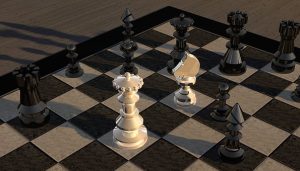
It is common knowledge that if everyone is down to you on the button, you have to scramble in the hope of stealing the blinds. Stealing the blinds from the button is considered a good strategy because you only need two people to fold, and even if one of them calls, you will have a positional advantage over your opponents
Next time when everyone is down to your buttons, don't frown, just reply. This will be especially effective if you have already called from the button several times before and stolen the blinds. Your limp will scare the players in the blinds as it is a strange move. The blinds will assume that you have a very strong starting hand, and as a result, a single Bet on the flop will usually win you the pot.
Another advantage of call only is that if one of the blinds finds a very strong hand, you can just fold to his raise.
This is a strategy to add to your arsenal of actions to balance your table image. You don't want to be predictable.
- Defend your big blind if you get good pot odds
Some players will defend their big blind almost every time. Some players will always look for a reason to fold when they are in the big blind.
You should not be predictable. If you are in the big blind and someone has raised, decide if there is a reason to play that hand. Even a hand like 8♣-6♣ can be an opportunity to accumulate more chips, as long as you get good pot odds.
Example:
You have 8♣-6♣ and are in the big blind. The early stages of the tournament are underway. You have 4,000 and the blinds are 50-100. The player in middle position with 3200 raises to 300. Everyone folds to you. What do you do?
Do not perform an automatic drop-off. Calculate pot odds. The pot is 450 and you need to call another 200, so you get better than 2:1 odds. That's actually pretty good pot odds. If your opponent has A-K, he is a favourite of about 60%. If he has Q-Q, he is roughly an 80% favourite.
Your hand is not too bad as you have a suited one-gaper. You have a comfortable chip stack of 40 big blinds and most importantly you have a chance to win a very big pot if you manage to hit your hand.
If you have folded your big blind every time so far, you are more likely to call in this situation. You don't want to be the player who is constantly folding his blinds to the raises, as your more observant opponents will start stealing your blinds even more often.
When you play in bigger poker tournaments, you will notice poker pros who are famous for their blinds with almost any two cards. They do this not because they have strong hands, but because they believe they can outplay their opponents.
You need to keep track of which of your opponents always defend their blinds, and conversely, almost never defend them. If you are dealing with one who almost always defends, make a bigger raise pre-flop to give your opponent worse pot odds.
Example:
You have 10♣-4♦ and are in the big blind. The early stages of the tournament are underway. You have 4,000 and the blinds are 50-100. The player in middle position with 3200 raises to 300. Everyone folds to you. What do you do?
This is exactly the same situation as before, except that your hand is very poor. Take a break.
Example:
You have 8♣-7♣ and are in the big blind. The late stage of the tournament is underway. You have 52,000. The blinds are 1,000-2,000 with a 50 ante. The player in middle position with 64 000 raises to 4 000. Everyone folds to you, so what do you do?
7500 in the bank. It would cost you 2000 to reply. You get odds of almost 4:1. Even if your opponent has aces, it is worth calling and seeing the flop.
- Folding your small blind before pre-flop raises is usually the right strategy
The small blind has the worst position in no-limit poker. And yet, some players feel tempted to defend their small blind, since they have already put in half the big blind. Most of the time you could say they are trying to catch something rather than defend their blinds.
Example:
You have Q♦-9♣ small blind. The early stages of the tournament are underway. The blinds are 25-50 and you have 2500. The player from UTG (first after the blinds) raises to 150. Everyone folds to you. The pot is 225 and it would cost you another 125 to call. What should you do?
Your odds are just under 2 to 1, but you have a bad hand, in the worst position, against a player who has raised from early position. Don't look for trouble and fold your hand.
Add to that, you don't know yet how the Big Blind will behave. If he were to beat the bets, you would be forced to cash out after investing more chips. Of course some players increase their mistake by calling the beat.
Don't get involved. Have you forgotten that you are about to be in the button position?
Example:
You have Q♦-8♦ in the small blind. You have 2500. Blinds are 25-50. The UTG player raises to 100. Three players before you call. The pot is 475. It would cost you 75 to call. What do you do?
You get odds of better than 6 to 1 to answer. This is a great option. Even though you don't have the strongest hand right now, you can take down the monster. Here is a very easy answer.





